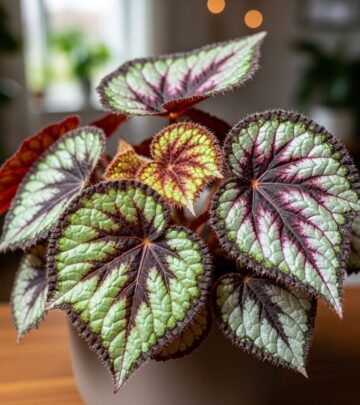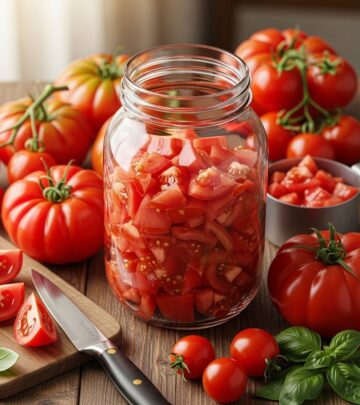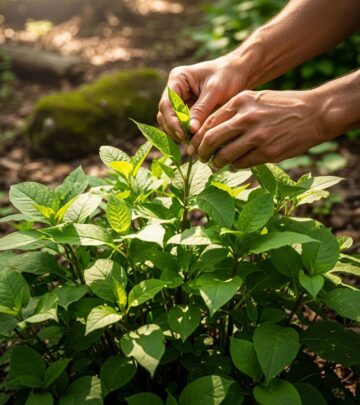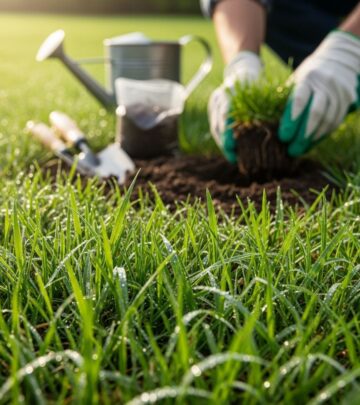Composting Citrus: Comprehensive Guide To Safe Backyard Compost
Discover how to safely and effectively compost citrus peels, fruits, and leaves for a balanced, thriving compost pile.
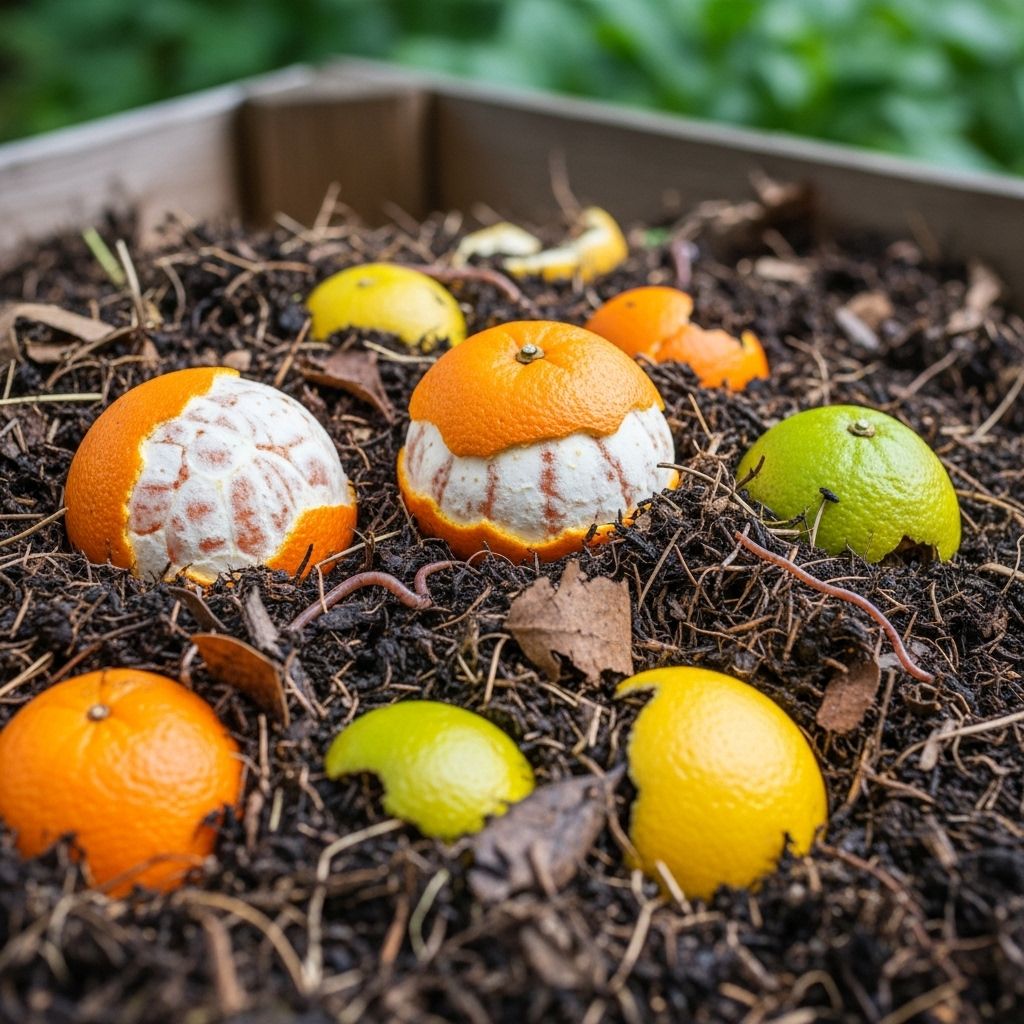
Image: HearthJunction Design Team
Composting Citrus: Everything You Need to Know
Citrus fruits like oranges, lemons, and limes are household staples and a frequent byproduct in home kitchens. But what do you do with all those citrus peels, fruit scraps, and even leaves? Many gardeners wonder if composting citrus is safe or beneficial for their backyard compost. The answer: yes, you can compost citrus – if you follow a few important guidelines. This comprehensive guide covers the benefits, concerns, preparation tips, composting methods, balance techniques, and answers to common questions about composting citrus peels and fruits.
Can You Compost Citrus? Myths and Facts
There’s a persistent myth that citrus can’t or shouldn’t go into your compost. In reality, it’s almost always fine to compost all parts of the citrus plant – peels, fruit, and even leaves – as long as they’re properly prepared and balanced with other compost ingredients.
- Myth: Citrus peels harm worms and beneficial microbes.
- Fact: When managed well, citrus is broken down by microbes and does not threaten soil life.
- Myth: Citrus will make your compost too acidic for most plants.
- Fact: Proper balancing with brown materials (carbon-rich) neutralizes excess acidity.
In short, citrus is compostable. The key is to use it wisely and balance your pile accordingly.
Why Compost Citrus?
Composting citrus waste keeps valuable organic matter out of landfills and returns nutrients to your garden soil. Here’s why adding citrus can benefit your compost:
- Adds diversity of nutrients, especially potassium and vitamin C.
- Provides beneficial oils and some trace minerals.
- Keeps kitchen waste out of the trash, reducing landfill methane.
Citrus scraps are considered “greens” (nitrogen-rich) in composting terminology, balancing well with dry “browns” (carbon-rich) like dried leaves, straw, or shredded paper.
Common Concerns About Composting Citrus
Despite the benefits, there are a few concerns to address:
- Acidity: Citrus fruits are acidic. Too much citrus can lower compost pH, making it too acidic for most soil microbes and worms.
- Oils: Citrus peels contain essential oils (e.g., d-limonene), which may act as natural antimicrobials if used in excess.
- Scent: Intact, unprepared citrus scraps may attract pests or emit strong odors as they break down.
- Slow Decomposition: Citrus peels can take longer than soft fruit or vegetables to break down if left whole.
All of these concerns can be managed by following the best practices below.
Best Practices: How to Compost Citrus
To ensure success, use these steps when adding citrus to your home compost:
1. Prepare Citrus Properly
- Chop or shred citrus peels and fruit into small pieces. This significantly increases their surface area and speeds up decomposition.
- Remove stickers, rubber bands, or anything non-biodegradable.
- Avoid adding large quantities at once; moderation is key.
2. Balance Greens and Browns
- Citrus counts as a “green” (nitrogen-rich) material.
- For every part citrus you add, use at least two parts “brown” (dry leaves, straw, shredded paper, hay).
- This balance helps neutralize acidity and absorbs extra moisture.
- Troubleshooting: If the pile smells sour or moldy, add more browns and stir well.
3. Distribute Evenly
- Mix citrus scraps in well with other materials instead of dumping them in one spot.
- Layer citrus with browns to encourage airflow and prevent compaction.
4. Use Hot or Cold Composting Methods
You can incorporate citrus into both hot (thermophilic) and cold (slow, passive) compost systems. Hot piles will break citrus down much faster, reducing oil and acid issues.
- Hot Compost: Turn the pile regularly to keep materials moving into the hot center (110–160°F). Citrus decomposes more efficiently at higher temperatures.
- Cold/Passive Compost: Citrus will break down, but more slowly. Always chop peels and mix well to avoid mold or pests.
5. Monitor Moisture and Aeration
- If the pile gets soggy (citrus is moist), add more dry browns and mix to absorb excess liquid.
- Turn or aerate the compost to prevent anaerobic (smelly) conditions.
6. Let the Compost Mature
After several weeks in a hot compost system (longer for cooler piles), citrus scraps should be well broken down. Finished compost should have no distinctive citrus smell and look dark, crumbly, and sweet-earthy.
The Science: How Citrus Breaks Down in Compost
Microorganisms (bacteria, fungi) and macroorganisms (worms, insects) are responsible for breaking down citrus scraps in your compost. Decomposition is fastest when:
- Peels and pulp are chopped small
- Browns and greens are kept in the right balance (ideally 2:1 browns to greens)
- Compost pile is kept moist but not soggy
- Air is available (pile is aerated)
- Pile gets hot enough to break down essential oils
Most citrus peels will disappear entirely within a few months in a well-maintained hot pile. Cold piles may take longer, but they will eventually break down as well.
How Much Citrus Is Too Much?
The key to composting citrus is moderation. High levels of citrus may create an acidic, oily environment that can slow decomposition and harm earthworms or beneficial microbes. Here are some tips for safe use:
- Limit citrus to no more than 10% of total compost volume at any one time.
- Always balance with extra browns to achieve a 2:1 or 3:1 ratio.
- Avoid adding entire bags of peels or large, uncut fruit at once.
Special Tip: Composting Citrus Leaves
Small quantities of citrus leaves (from pruning or kitchen scraps) can go into your compost along with fruit and peels. These are slightly more fibrous and should be shredded or chopped. Avoid large woody stems.
What About Composting Citrus for Vermicomposting?
Vermicomposting (using worms) is more sensitive to acidity and essential oils. Worms can tolerate small amounts of citrus, but too much may drive them away or cause discomfort. For worm bins:
- Feed only very small amounts of chopped citrus scraps at a time.
- Balance with lots of bedding (paper, cardboard), as this helps absorb acids and oils.
- If worms seem to avoid citrus, stop adding it for a few weeks and let the bin rest.
Hot composting is a better option for larger amounts of citrus waste.
Composting Citrus: Step-by-Step Summary
- Chop peels and fruit into small pieces.
- Mix with at least two times as much brown (carbon-rich) material.
- Distribute evenly throughout the pile.
- Monitor the pile’s moisture, aerate regularly, and avoid letting it get too wet.
- Allow several weeks to several months for complete decomposition, depending on temperature.
Table: Pros and Cons of Composting Citrus
| Pros | Cons |
|---|---|
| Recycles valuable nutrients | Can lower compost pH if overused |
| Reduces kitchen waste | Essential oils may slow decomposition |
| Improves compost diversity | May attract pests if not chopped/mixed well |
| Breaks down well in hot compost | Slower to decompose in cold compost |
Frequently Asked Questions (FAQs)
Q: Will citrus peels harm my compost worms?
A: Small amounts of citrus are usually safe, but large amounts may repel or harm compost worms due to acidity and oils. It’s best to limit citrus in vermicomposting setups.
Q: Can I compost whole lemons, limes, or oranges?
A: Whole fruits decompose slowly and can attract pests. Always chop or slice citrus before composting for faster breakdown and better mixing.
Q: Will composted citrus make my soil too acidic?
A: Not if you use citrus in moderation and balance with extra brown matter. Finished compost typically has a neutral pH, even with some citrus included.
Q: Are there plants that benefit from citrus-rich compost?
A: Yes, acid-loving plants (like blueberries, azaleas, and hydrangeas) may benefit from compost with slightly more citrus content.
Q: What should I do if my compost smells sour after adding citrus?
A: Add more dry browns and turn the pile to restore balance and improve aeration. The smell should dissipate as the pile stabilizes.
Q: Can I put citrus peels in my municipal green bin?
A: In most areas, yes. But check with your local program for specific guidelines, as rules for compostables can vary by region.
Composting Citrus: Key Takeaways
- It is safe and beneficial to compost citrus in most home compost piles.
- Moderation, chopping, and balancing with brown materials are essential for success.
- Avoid overloading your pile with citrus or using it as the primary green material.
- Well-managed piles quickly break down citrus, delivering great compost for gardens of all types.
Composting citrus is a sustainable way to recycle kitchen waste and enrich your soil. With just a few simple precautions, you can safely add orange, lemon, and lime peels to your compost and enjoy healthier, more productive gardens season after season.
References
Read full bio of Shinta







